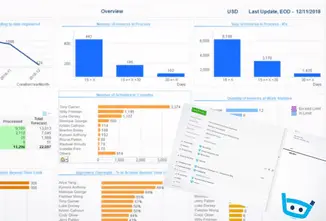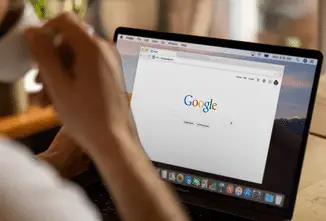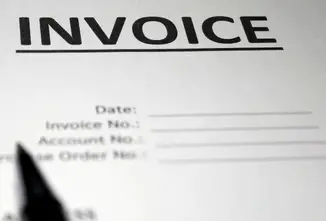Listen to the article: (13:45min)
If you are reading this, you are probably in a situation where you have bills to pay but are unable to do so, because the people you have done business with have not paid you.
Negotiating an unpaid invoice is often a frustrating process – especially if you are the small business owner who issued the invoice. Receiving payment for an invoice that has gone unpaid can be difficult, and it is essential to remember that you have options.
When this happens, you have a few options available to you.
You can take legal action, but that can be expensive and often doesn’t yield much. Getting a collection agency involved can be a good option, but what if they don’t collect?
The best thing you can do is contact the collection agency and then sell your unpaid invoices at collections. Selling your due invoice to a finance company will give you the chance to receive a portion of the value of the outstanding invoice.
The best part of all of this is invoice factoring does not require you to have the capital to fund your business.
So, what exactly is Invoice Factoring?
How to sell invoices?
How does it work?
Is it legal?
And how can it help your company?
Let’s dive in and find out.
Should I sell my unpaid invoice?
You can sell an unpaid invoice from a client if you have a legal right to do so.
That means that you should not sell an invoice that is still under dispute, or which has been set against a bank guarantee.
In the business world, the unpaid invoice has become a hot topic. And the truth of the matter is, if you don’t want to wait any longer for your money, you should sell the unpaid invoice.
The way the unpaid invoice works is to make a purchase from a company for a certain amount of money. And at the time of sale, the company agrees to pay you back for the money that you spent.
But, sometimes, for whatever reason, the company will default on their agreement and will not pay you back for the money you spent.
Selling your unpaid invoices may help you relieve tension by allowing you to make payroll, pay bills, buy more stock, and even fulfil client requests.
The easiest way to get money out of an unpaid invoice is to sell it. You can sell the outstanding invoice for cash if you need the money right away, but the best way to take advantage of it is to sell it to a third party.
Many businesses use this option because it’s cheaper to collect the debt than hiring an attorney to sue someone.
However, an unpaid invoice must meet specific criteria to be legally collected in this way.
The interest in outstanding invoices has grown in the last few years. There are more and more companies who wish to purchase outstanding invoices.
Is it legal to sell unpaid invoices?
If you are in business, you will at some point be owed money by your clients.
When this happens, you may be tempted to wait until that money comes in a simple, but it might be a better idea to sell your unpaid invoices.
Selling your invoices means that you take your debts and sell them to a debt collection agency. And those agencies are more than happy to pay for the right to try to collect what you are owed.
The company may choose to pay the invoices, not pay the invoices, or pay only a portion of the invoice.
An unpaid invoice should have been paid or is in some stage of a contract dispute. Is it legal to sell outstanding invoices? The answer depends on the reason for the unpaid invoice.
A business invoice is a document that summarizes your business transactions. Since an invoice is a legal document, it must be written and submitted correctly to ensure your rights are protected.
It’s important to remember that an invoice must be paid by the due date. Otherwise, it becomes legally overdue.
It is vital to keep in mind that an unpaid invoice can be reported to a collection agency. Once it has been reported to a collection agency, you can no longer rely on the fact that the invoice will be paid on the due date.
Advantages to selling your invoices
Selling unpaid invoices refers to the process of selling invoices that you are owed, but the company you’re owed from isn’t paying you.
Selling unpaid invoices can be a good business strategy for small businesses that have difficulty collecting outstanding invoices from their customers. For one thing, it can be easier to sell to a third-party company than to go directly to your customer.
In addition, the process can be lucrative, mainly if you sell to a company that is buying unpaid invoices in bulk from small businesses. In business, there are several benefits to selling unpaid invoices. Such as:
Is invoice factoring right for your business?
If you are a small business owner with many outstanding invoices, then invoice factoring may be a perfect solution for you.
Invoice factoring is a simple process that allows a business to turn their invoices into cash right away, no matter how much or how little is owed.
If you own a business, you may have wondered how to get your cash flow on track. When you try to collect money from a customer, you may have to wait a long time to get paid.
But invoice factoring allows you to receive the money you are owed right away.
The reason that factoring is gaining more popularity is because of its flexibility.
For example, if your business has a £10,000 invoice for materials. And you get paid within the next month. You may not have any urgent need for that money, especially if you are in the process of waiting for more invoices to come in.
Factor the invoice, and you can receive 80% of the invoice value right away.
The £8,000 cash infusion would go directly to your business’s bottom line, making it possible to grow the company with your current cash flow.
Once the factoring percentage is set, the invoice factoring company contacts the business clients and offers them to buy the invoices.
What is invoice factoring?
Invoice factoring is the procedure of obtaining cash advance by submitting invoices to a factoring company.
This business arrangement is considered somewhat like a loan and the factoring company is considered as the lender. It is a viable alternative to bank borrowing that will enable you to benefit from the sale of your outstanding invoices.
This third party provides the business with much-needed cash in exchange for the right to collect the money the company is owed.
This is actually an ancient business practice, and it’s still quite common today.
In ancient times, if your business were into the fish trade, you would sell your fish to a middleman at a set price, who would then sell it to the public at a higher price.
For example, a company needs funds to purchase inventory, but doesn’t have enough cash flow to cover the costs.
They send the invoice to the factoring company, who agrees to pay the invoice price and takes ownership of the invoice.
Then, the invoice factoring company pays the business owner the money owed and pockets the difference.
There are many benefits to invoice factoring, including access capital quickly and getting paid sooner. Plus, have a better cash flow than if you were to wait for payment from your customers.
How quickly can I get funded in factoring?
If you are looking for a company to purchase your invoices, you will want to know precisely how long the process takes.
There are several companies out there, but not all of them are trustworthy.
Many of them want all or part of their payment upfront.
This means that you can wait for a long time without anything. So, what is the fastest way to get paid by a buyer?
Selling an invoice to a factoring company is a quick way to get funds. The setup procedure should take only a few days. Nevertheless, the subsequent invoices can usually be paid on the same day if verified rapidly.
The process is simple: You send the invoice to the company and get paid on your behalf. Once the factor has your invoice, it is paid immediately.
There are several reasons why businesses may find themselves in need of a discounting invoice service. A change in business practices may lead to an increase in unpaid invoices, for example.
Or a problem with cash flow or an unexpected expense may make it difficult for a business to pay its bills on time.
In either case, discounting invoices can help companies receive the necessary funding.
How much can I raise by selling invoices?
There are several additional avenues to pursue in trying to raise money by selling invoices. One of the most time-consuming but potentially lucrative is to sell the invoices to a third party.
Some business owners have realised that they can generate a much-needed cash flow by selling invoices (also called accounts receivable), and I’m here to tell you they are absolutely right.
After selling your unpaid invoices, your profit depends on the circumstances of the sale: whether you have collateral, your track record, the value of the invoice, or the company you’re dealing with, etc.
They will pay you an amount of money equal to around 80 to 95 percent of the value of the invoice. The remaining 5 percent will be reimbursed to you, if any, after your client pays the factor.
You are essentially selling part ownership of an invoice for a small percentage of the money owed.
So, You will collect £45,000 if you sell accounts receivables worth £50,000 and secure a 90 percent advance, for example.
If you are starting a new business or have a good business idea, you can get a loan from the bank by selling your unpaid invoices.
How to sell your invoices to a factoring company?
The fact is that selling unpaid invoices is not as difficult as it seems; there are several ways to make it happen.
But, before you try them, it is essential to know that unpaid invoices are legally binding under the law of your country.
So, you have to be careful about what you are doing and know that you can be sued for unpaid invoices.
In some cases, you may be able to recover the invoice by taking the matter into your own hands. Below are a few steps to help you do so.
It generally amounts to 1% to 5% of the overall payout. The quality and the duration of the payment by the sellers determine the costs of the fees.
For instance, trustworthy customers paying within 30 days may only face a 1% or even less charge. On the other hand, they will charge 2-4% for slow-paying clients taking over 60 days.
This is a rapid method, and the seller makes little effort to submit more invoices from the factoring.




![How to write past due invoice emails that work [+ tips & templates] 4 How to write past due invoice emails that work](https://brodmin.com/wp-content/uploads/2022/04/How-to-write-past-due-invoice-emails-that-work.webp)
![How to invoice international clients [+ 10-point checklist] 5 Invoicing international clients](https://brodmin.com/wp-content/uploads/2021/10/Invoicing-international-clients-0.webp)






